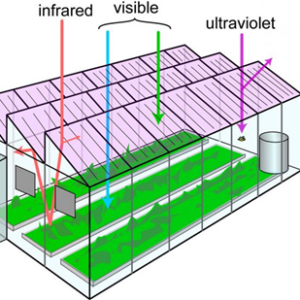Research
Current Areas of Research
Quantum Materials

Energy Materials & Sustainability

Organic Electronics & Bioelectronics

Smart Materials Lab

| Photovoltaics Solution processable organic and hybrid semiconducting materials have emerged as alternatives to the traditional semiconductors due to their appealing features for roll-to-roll printing technology. In ORaCEL, several faculty pursue fundamental research on understanding the processing, and optoelectronic properties of bulk heterojunction and perovskite solar cells. | OLEDs Organic light emitting diodes (OLEDs) have recently made their way into commercialization as a backlight for displays in electronic devices, to provide high-quality images, lower power consumption, better durability, flexibility, and transparency. ORaCEL researchers have made vital efforts in pushing OLED research for commercialization. | |
| Transistors Tremendous efforts have been made over the last few decades to realize highly efficient flexible, transparent, cheap and large-area organic field effect transistors (OFETs). ORaCEL focuses on developing solution processed transistors aiming at unraveling fundamental material-function relationships and integrate OFETs in electronic devices. | Spintronics Spintronics ― an idea of not only using the charge but also the spin of electrons ― shares many analogues with electric charges in the operations of conventional electronic devices. ORaCEL research aims at unraveling the predicted Rashba splitting state in bulk 3D and 2D HMH materials and manipulating the Rashba-induced spin-to-charge conversion. | |
| Materials Development We develop optoelectronic devices comprising organic semiconductors, quantum dots or hybrid materials. We are, hence, committed to designing and synthesizing materials with desired optoelectronic properties. The target materials includes conjugated polymers, electron acceptor molecules, quantum dots, and perovskites. | Textile Electronics With organic semiconductors offering features for developing flexible electronics, ORaCEL is making efforts in developing flexible, textile electronics, with a particular interest of the design of ‘smart’ textile platforms (wearable, internet of things) that enable improved materials integration of sensors, energy harvesting, energy storage, and communication devices. | |
| Spectroscopy We use various spectroscopic tools to gain detailed knowledge of the structure of molecular aggregates to design new high-performance devices. To that end, we operate a scanning tunneling microscopy, pump-probe techniques such as time-resolved photoluminescence, transient absorption spectroscopy, time domain terahertz spectroscopy, and several more. |